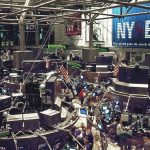Hong Kong’s rich millennials are making inroads as they push for their family fortunes to be invested in ways that generate not only returns, but also a positive social and environmental impact.
A difference in opinion, however, with the previous generation about wealth preservation and an inadequate local supply of investment products as well as advisers mean for many it can only be a step-by-step transition – a journey with a steep learning curve.
“We expect our money to do more than just make more money. We expect our money to actually make a difference,” said Michael Au, the managing director of District Capital, which invests in start-ups as well as funds with a sustainability mandate. A third-generation family wealth owner and manager, he set the firm up two years ago.
“Wealth has been professionally managed for much longer in the West than in Asia … some of our [older] family members are still business operators. We have to shift their bottom line focused mindset to a more holistic approach – while we need to preserve wealth, we need to preserve the world as well,” he said in an interview.
District Capital is a “single-digit percentage” carve-out from the assets of a 15-year-old family office. Family offices are private firms managing the wealth and affairs of a rich family. Au’s family has accumulated its wealth mainly from real-estate development. And as more millennials in the family – some with backgrounds in finance and health care – became stakeholders in the family office, they wanted a say in how its wealth was managed.
“Initially, we tried to do it within the family office structure, where I operated one of the departments. But there was a lot of stigma and resistance around sustainability and even private-equity investment, within our professional investment team,” said the 37-year-old, who has previous experience as a wine trader and entrepreneur. “We realised it would be much more nimble to create a complete carve-out that is independent … it doesn’t affect everyone’s life, but everyone can have their input.”
Establishing a structured vehicle was only part of the struggle.
About 80 per cent of the 18 family offices surveyed by Sustainable Finance Initiative (SFi), a non-profit information and experience sharing programme launched last year by RS Group, the decade-old family office of Annie Chen, said they faced challenges in getting advice from wealth management advisers, finding quality investment targets, conducting due diligence and measuring project impact.
“One of the hurdles is the lack of advisers who understand the contemporary impact investing dialogue from an Asia perspective,” Au said. It was a lonely journey for him, until he met like-minded peers, some through SFi.
The initiative was set up by RS Group, itself a carve-out that Chen started with her personal fortune following a restructuring of her family’s assets. She is the youngest daughter of Thomas Chen Tseng-tao, the former chairman of Hong Kong property developer Hang Lung Group.

Ronie Mak, the managing director of RS Group who led the SFi’s establishment, said it had satisfied unmet needs of the community, including the cross-referral of international investment ideas and advisers and co-investment opportunities. It now has more than two dozen family offices and investors as members.
“Today, banks are offering more sustainable investment services, but it is questionable whether they can fully meet the needs and objectives of family offices here, whereas SFi is a neutral non-profit seeking platform, led and supported by asset owners,” she said.
SFi in January this year brought together five family offices, RS Group, Affinity Impact, Blue Pte, OIC Capital and Peterson Group, to co-invest in a US$700 million private-equity fund that aims to provide access to insurance, savings, pensions, credit and health care services to low-income consumers in Asia and Africa.
RS Group has built and managed a fully sustainability-aligned portfolio, achieving an average net annual return of 5 per cent over 10 years – slightly above its comparison benchmark, according to Mak.
“We were able to fully meet the family’s personal needs, RS Group’s philanthropic giving and operating expenses, whilst achieving our social and environmental impact objectives,” she said.
Durrie Hassan, the executive director of Visible Mission Ventures, the Asia-focused impact investment division of a family office, said the greater availability of publicly traded sustainable investment options has seen the allocation of his family’s assets to Visible Mission rise from 10 per cent five years ago to 20 per cent. It could rise further to between 25 per cent and 30 per cent in three years.
One, however, needs to carefully follow up on an investment’s impact and be mindful of one’s limited capacity to do so, said Hassan, a Hong Kong-based Malaysian is in his mid-30s. Last year, he did a course on impact measurement offered by the University of Oxford to bolster his skills.
“There is a lot of impact washing going on … we must review what’s being done rather than what’s being claimed.”
For Au and Hassan, who enjoy working with entrepreneurs to grow start-ups, some of the monitoring can be quite hands-on.
Au’s District Capital has so far made more than a dozen direct investments in start-ups either by itself or through co-investments, as well as in a handful of funds.
Among start-ups being funded by District Capital is Israel-based biotechnology firm DouxMatok, which is commercialising a new sugar product that allows people, including diabetics, to reduce their sugar intake without sacrificing sweetness.
Another start-up being funded is Jumbotail, an Indian food and grocery online wholesale platform that helps family-run shops aggregate their purchasing power to get better prices and credit terms from suppliers.
Meanwhile, senior family members are “cautiously observing” Au’s activity, still needing some convincing. “The feel-good story is there, but they still think returns must be compromised to do social good. To them, we have to deliver the money, and any positive impact is the cherry on top,” he said.
Steep learning curve for rich millennials seeking social impact, returns South China Morning Post
Source: impact investing




